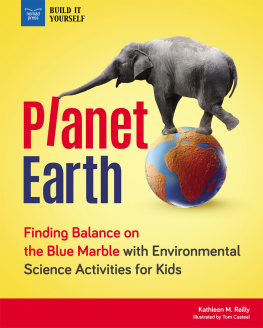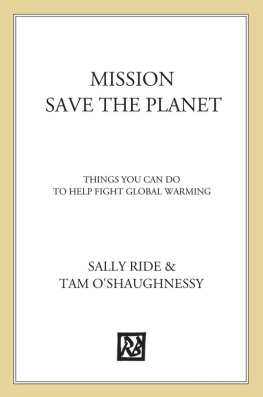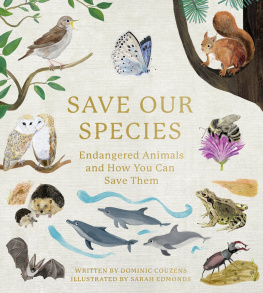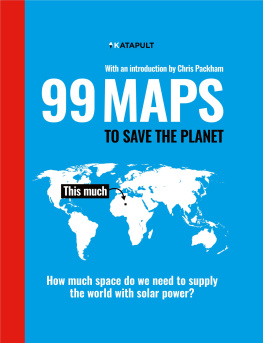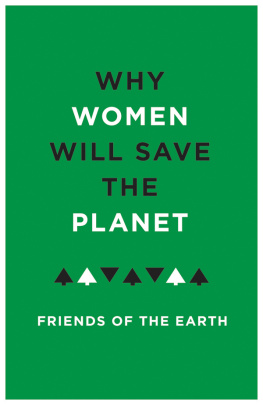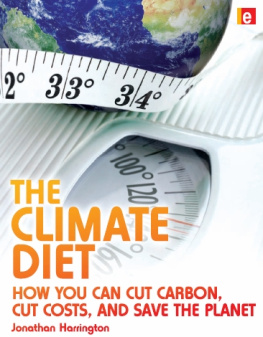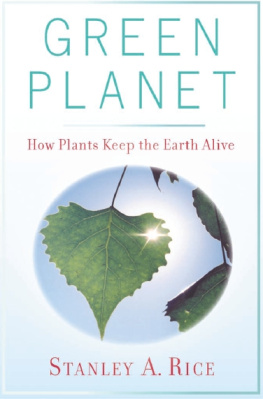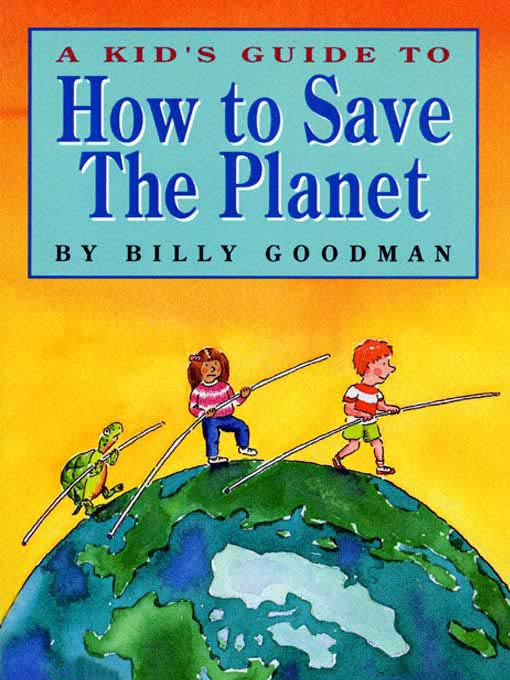CONTENTS
To Becky, for keeping me well fed.
And to Alex Orzeck-Byrnes,
for keeping me on the right track.

In 1987 this barge full of garbagewhich no dumping facility would acceptbecame a symbol of the growing waste disposal problem in the United States.
Chapter 1
YOUR PLANETS IN TROUBLE
U nless youve been asleep for, oh, say the past several years, you know that the Earth is in trouble. Turn on the TV. You see pictures of garbage or dead dolphins washing onto a beach. Open a newspaper. You read that scientists predict the Earth is getting hotter. Towns all over the country are having a hard time figuring out where to stash their trash. (Remember the garbage barge that was towed thousands of miles as its owners looked for a place to dump trash from New Yorks Long Island?) The tropical rain forests are being burned at an incredible rate. They might even disappear in our lifetime.
Environmental problems have plagued humans for a long time, but in the 1980s we recognized something new. As paleontologist Stephen Jay Gould said, People have ruined parts of the planet before. But in the 1980s we realized we could harm the entire planet.
That planet, Earth, is our home. And its the only one weve got. Astronauts may someday reach Mars or go back to the Moon. They might even establish a colony in one of those places. But humans will just be visitorsneither the Moon nor Mars has an atmosphere that people can breathe, a climate we would find comfortable, food to eat, or anything else to remind us of home.
So, we have to keep the only home we have in the best possible shape. Were going to live here a long timewe hope! Its like having an old car. You give it tender loving care; keeping it well oiled; making sure the tires are properly inflated, all the fluids and filters are fresh, all the parts are working. But the more you use the car and the more people ride in it, the harder it is to keep it running smoothly.
Thats whats happening on Earth. More and more people are calling it home. So the Earth has to work harder to provide food, fresh water, and fresh air for everyone at the same time as it accepts the waste we produce.
This book will tell you how the Earth works and what you can do to help keep it working properly. You may think that you cant have much influence; after all, youre only one person and there are more than 5 billion other people around the world. But you wont be the only person working to save the worldif you were, the outlook would be truly hopeless. Others will be doing their part, too. Some will read this book and begin treating the planet the way they should. Other people will read other books or see television programs that will inspire them to work to save the planet. Still others may follow your example. Encourage your friends to learn about the environment. Convince your parents to recycle bottles and cans. People do make a difference.

As more and more people call Earth their home, our planet has to work harder than ever to support them all.
Ten Incredible Things You Should Know About the Earth
- Nigeria, an African country twice the size of California, has one of the fastest growing populations in the world. Its population will double in just 22 years. At the present rate, the population of Nigeria will equal the entire population of the world today in just 140 years.
- Twenty percent of the worlds population in the rich western countries uses 70% of the worlds energy.
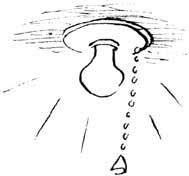
- There are about 500 million automobiles on the planet, burning an average of two gallons of fuel a day. Each gallon releases 20 pounds of carbon dioxide into the air.
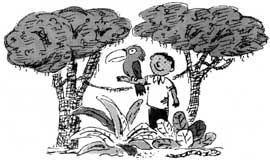
- About 50 acres of rain forest are destroyed every minute. In one year, rain forest equal in size to the state of Virginia is lost.
- One-tenth of one percent of all the oil produced in the world each yearabout 5 million tonswinds up in the ocean.
- By 1995, 2,000 of the existing 6,000 landfills in the United States will be full.
- In the 15,000 years since the glaciers pushed their way into the northern United States, the average temperature has increased nine degrees Fahrenheit. Because of the greenhouse effect, scientists fear an equal temperature increase might occur in just a few hundred years.

- If you throw away two aluminum cans, you waste more energy than one billion of the worlds poorest people use a day.
- Would you buy something just to throw it away? About one-third of what an average American throws out is packaging.
- More than one billion trees are used to make disposable diapers every year.
Chapter 2
HOME, SWEET EARTH
The Story of Your Planet
B efore you can set about saving the Earth, you need to know what youre saving. How old is the Earth? Whats special about it? We need a short biography.
The Earth is about 4.6 billion years old. That amount of time is hard to imagine. How can scientists even figure out something like that? They discovered that many rocks have their own internal clocks that start ticking when the rocks are formed. The clocks are in the form of radioactive elementssuch as uraniumthat change over time into other elements. It works like this. Suppose there are ten chocolate cookies in a cookie jar. Every day one turns into a vanilla cookie. If you looked at the jar and saw six vanilla cookies, youd know the whole jar of cookies was six days old. Similarly, if half the uranium in a rock has turned into another element, then scientists can figure out how old the rock is. This method of establishing the age of a rock is called radioactive dating. It is how we know that the oldest rocks found so far on Earth are nearly 4.6 billion years old.
As difficult as it is to know how old the Earth is, its even harder to be sure what conditions were like at the start. Scientists agree that the early atmosphere lacked oxygen. If oxygen had been present, rocks that formed at the time would have been different chemically. Scientists believe that many gases present in the early atmosphere came from inside the Earth, escaping from volcanoes. For the first few billion years of the Earths history, the atmosphere was probably mainly nitrogen, hydrogen, carbon dioxide, and water vapor. That mix of gases would be poisonous to any of todays animals.
The first organisms, therefore, had to be able to live without oxygen. (Some bacteria still do and are found in hot springs or at the bottom of the ocean.) Gradually, some of the organisms developed an ability to use the Suns energy to take the carbon dioxide and water that were plentiful in the environment and make food for themselves. This process is called photosynthesis and is what all green plants do today. For our story this step is crucial because during photosynthesis, plants exhale oxygen. Gradually, the oxygen level in the atmosphere rose as more and more organisms became green plants and carried out photosynthesis. Eventually, there was enough oxygen for animals to emerge on land.


